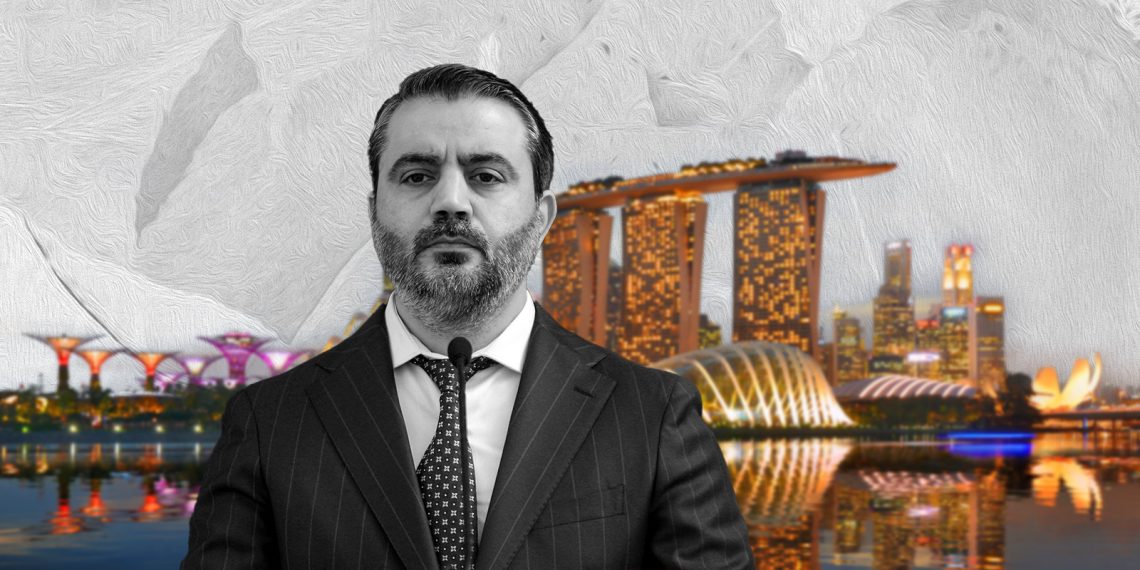Months after seizing power, Syria’s new rulers remain conspicuously silent on the guiding principles, strategic choices, and ideological commitments that might define their rule. Only a single, cryptic remark—offered by Foreign Minister Assaad al-Shibani at the Davos conference—provides any hint: “We will draw inspiration from the Singaporean experience.”
This carefully staged utterance, delivered by the man widely regarded as the intellectual core of the regime, was at once sweeping and empty—a slogan that promised everything while committing to nothing. History warns us: in Syria, slogans that say everything often conceal a deliberate intent to say—and to achieve—nothing.
It is unnecessary to belabor the obvious: Syria cannot replicate Singapore.
The city-state’s explosive development arose from circumstances utterly alien to Syria’s grim reality—a small, secure enclave, flourishing amid giant neighbors, lubricated by capital flows it facilitated but never threatened.
Syria, battered by civil war, sanctions, political ruin, and sectarian fragmentation, bears no resemblance to the Singaporean model.
The real danger lies not in the fantasy of emulation, but in the political subtext this slogan reveals: a new authoritarianism, draped in the borrowed robes of economic modernization, but built atop the same foundations of repression and exclusion that have defined Syria’s tragedy for generations.
The centering of authority around a single hollow slogan—offered without political or ideological substance—betrays two ominous trends:
First, it signals an intent to consolidate a totalitarian structure, where the ruling elite entrench themselves as an immovable core, insulated from any genuine social or political participation, let alone challenge.
Second, it underscores the continued denial of justice to millions of Syrians—the fundamental injustice at the heart of Syria’s long catastrophe.
Syria’s crisis was never primarily economic. It has always been political, existential: a systematic exclusion of citizens from power, a crushing of their rights to voice, assembly, and dignity. Economic collapse, social fragmentation, and civil war were but symptoms of this deeper rot.
Now, the new regime appears poised to perpetuate this original sin, merely dressed in the rhetoric of inspiration and development.
As history across the Middle East shows, regimes that fail to deliver justice invariably retreat into narrow solidarities—clan, sect, family, tribe—building hardened cores of loyalty against the very societies they claim to serve.
But Syria’s new rulers, acutely aware that traditional loyalties have withered, are attempting to forge a new asabiyya—a new, transactional solidarity.
It is a strategy based on two pillars:
First, the seductive promise of future economic miracles, deployed to defer, dilute, and ultimately extinguish demands for political or judicial reform.
Second, the recruitment of a new class of economic elites—the so-called fat cats—who will serve both as the regime’s social base and its guarantors, through webs of patronage and clientelism stretching across Syrian society.
Through this dual mechanism, the regime seeks to shield itself from the volcanic demands for freedom and dignity that have not disappeared—only deepened—among the Syrian people.
The invocation of Singapore is not simply a false promise; it is a calculated distraction.
It echoes the grim absurdities of the 1990s, when—after the Assad regime’s ideological bankruptcy became impossible to conceal—it submerged the nation in an orgy of symbolism centered on Bassel al-Assad and his horse.
For a decade, the image of a horse blanketed the country, replacing justice, liberty, and governance with hollow veneration. A whole people were drowned in the worship of a horse, their suffering papered over by spectacle.
Today, under the veneer of Singaporean inspiration, the same tragedy threatens to unfold anew.
Syria does not need borrowed slogans or manufactured miracles.
It needs truth, accountability, and a radical reimagining of the relationship between ruler and ruled—a recognition that sovereignty belongs to the people, not to any family, faction, or economic cartel.
Without such a reckoning, the new regime will not lead Syria toward renewal but will merely deepen the old wounds under a glossier, more cynical façade.
The horse has changed; the tragedy remains.
This article was translated and edited by The Syrian Observer. The Syrian Observer has not verified the content of this story. Responsibility for the information and views set out in this article lies entirely with the author.


